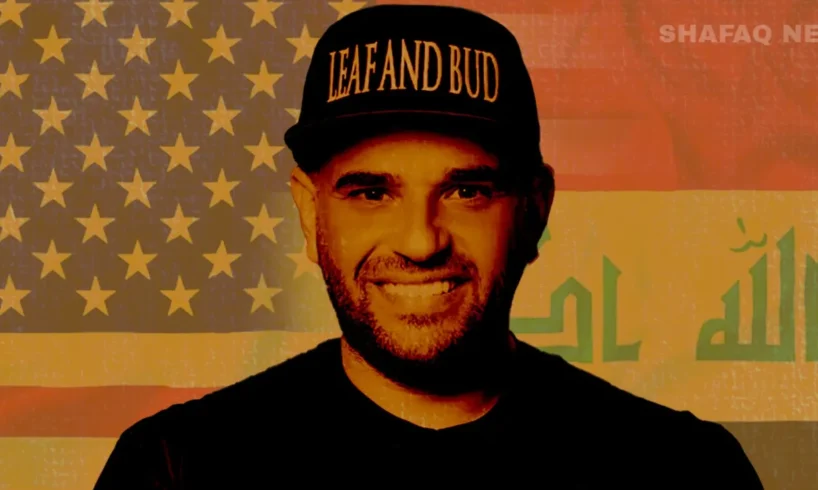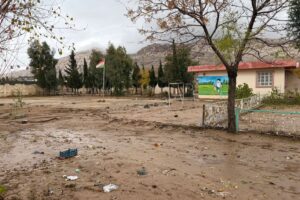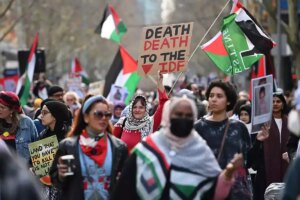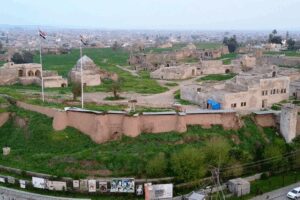
Shafaq News – Baghdad
Mark Safaya’s appointment
as the United States Special Envoy to Iraq marks a pivotal moment in
Baghdad–Washington relations, testing Iraq’s ability to balance American
influence and Tehran’s leverage amid renewed regional tension.
For US President
Donald Trump, the move reflects a shift in American engagement—prioritizing
economic leverage, governance oversight, and direct dialogue with Iraqi leaders
over a traditional military presence. For Baghdad, the appointment brings both
opportunity and caution, as the government seeks to align with Washington’s
expectations while navigating Iran’s entrenched influence.
Trump’s Calculated
Choice
A businessman of
Chaldean Iraqi descent, Mark Safaya, was introduced by President Trump as an
unconventional envoy tasked with “rebuilding trust and strengthening
partnership with Iraq.”
Trump described
Safaya as someone with “a deep understanding of the Iraq–US relationship” whose
personal roots could “help advance the interests of the American people.”
US Chargé d’Affaires
in Iraq, Joshua Harris, framed the appointment within a broader strategic
shift. In an exclusive interview with Shafaq News, he emphasized that “Iraq
still holds a central place in US policy,” rejecting suggestions of disengagement.
“This is not a
withdrawal—it is a redefinition of interests,” Harris added. “Under President
Trump, the US is putting American interests first, a principle applied
globally.”
Safaya’s appointment
follows Trump’s pattern of selecting non-traditional envoys—such as Thomas
Barrack for Syria and Lebanon or Jason Greenblatt for Middle East peace—whose
influence relies more on personal diplomacy than bureaucratic channels.
Described in
Washington as “an envoy for a special phase,” Safaya is expected to focus on
oil-sector reform, financial oversight, and the monitoring of Iran-aligned
factions.
Safaya’s First
Remarks
In his first public
comments since assuming office, Safaya said the relationship between Baghdad
and Washington was entering “a new phase requiring direct and honest
communication.”
“I want to make Iraq
great again,” he declared, invoking Trump’s signature slogan. He described Iraq
as a nation that “improves each day and has no limits to its potential,”
stressing that his mission is to help rebuild trust and reinforce the strategic
relationship between the two countries.
“My focus is squarely
on the Iraqi people,” he said.
Safaya is the third
American to hold such a position since 2003, after Paul Bremer, who oversaw
post-war reconstruction, and Brett McGurk, who coordinated the anti-ISIS
campaign. Unlike his predecessors, Safaya’s background lies in business rather
than politics or the military—an intentional choice reflecting Trump’s
preference for pragmatic dealmakers over establishment diplomats.
An Unofficial Channel
to PM Al-Sudani
Haitham Numan
al-Hiti, professor of political science at the University of Exeter, viewed
Safaya not as a strategic planner but as a direct intermediary between Prime
Minister Mohammed Shia al-Sudani and President Trump.
“His appointment
breaks with protocol between Trump and al-Sudani,” al-Hiti told Shafaq News,
describing Safaya as a personal messenger between the two leaders. He noted
that the decision followed the Sharm el-Sheikh conference, “where Trump may
have been influenced by an Arab stance supportive of al-Sudani and decided to
send a personal envoy to act as a bridge.”
According to al-Hiti,
the move signals “direct US backing for al-Sudani and his political future,”
possibly marking the start of “a new phase in US–Iraq relations aimed at rolling
back Iranian influence.”
Read more: Back on Washington’s radar: Iraq’s return to the US strategic map
Three-Pillar Strategy
Ihsan al-Shammari,
head of the Political Thinking Center in Baghdad, explained that Safaya’s
mission follows a plan drafted by a seven-member White House committee over the
past six months to implement Trump’s approach toward Iraq.
He outlined three
main pillars:
-Limiting Iranian
influence – Washington seeks to fully disengage Baghdad from Tehran and opposes
integrating the Popular Mobilization Forces (PMF) into the national military
structure, viewing it as “neither a solution to the crisis nor a path for the
government to maneuver.”
-Reasserting economic
control – Trump aims to tighten US oversight of Iraq’s oil sector and curb
smuggling and oil-mixing operations. Al-Shammari recalled Trump’s remark at the
Sharm el-Sheikh conference that “Iraq has oil but lacks management,” reflecting
Washington’s intent to become a direct partner in Iraq’s energy governance.
-Restructuring the
political process – The plan includes reinforcing security cooperation and ensuring
that Iraq’s future leadership remains aligned with US interests.
Al-Shammari warned
that if Baghdad fails to align with the US vision, Washington could classify
Iraq as a “non-friendly state”—a label carrying serious diplomatic and economic
implications. Still, he argued, Baghdad’s ability to reject the plan is limited
by “domestic disarray and the waning influence of Iran’s allies,” conditions
likely to push the government toward acceptance.
Read more: Iraq’s PMF Law: A battle for state control
Cautious Acceptance
in Baghdad
Despite the
significance of Safaya’s mission, Iraq’s political blocs have reacted
cautiously rather than confrontationally. The Coordination Framework (CF), the
Iran-aligned Shiite coalition leading the government, presented the appointment
as a procedural step rather than a political intrusion.
CF member Imran
al-Karkoushi told Shafaq News that the bloc views the move as a “normal step”
to advance shared issues between both countries. He said the CF would wait for
an official response from the Iraqi government and Foreign Ministry before
issuing its own position, describing the appointment as “a sign of Washington’s
commitment to strengthening bilateral ties.”
Rejecting claims of
US interference, al-Karkoushi said the appointment “does not constitute
meddling in Iraq’s internal affairs or impose US guardianship.” He added that
Safaya’s mandate is “technical and issue-specific,” intended to facilitate
coordination on shared concerns outside the usual diplomatic channels—without
infringing on Iraqi sovereignty.
Other political blocs,
including several Sunni and Kurdish factions, have so far remained silent.
Tehran’s Watchful Eye
For Tehran, Safaya’s
appointment carries a deeper strategic meaning. Iranian researcher Ali Akbar
Barzanouni said the move reflects Washington’s recognition of Iraq’s centrality
in regional power dynamics, “especially since Iraq, for Iran, is not merely a neighbor
but a strategic, security, and economic depth.”
“Any US action in
Baghdad is viewed in Tehran as an attempt to undermine this strategic depth,”
Barzanouni explained, warning that Safaya’s mission will face challenges given
the deep roots of Iranian influence in Iraq’s political, social, and religious
networks.
He added that the
envoy’s ability to bring about fundamental change will be limited, since Iraq’s
decision-making remains shaped by a delicate balance between Washington and
Tehran.
“Previous US efforts
to weaken Iraq–Iran relations have failed,” Barzanouni concluded. “In fact,
cooperation between the two countries has expanded, driven by both official and
popular will.”
Influence Without
Force
Safaya’s arrival
encapsulates a subtle but decisive evolution in US–Iraq relations. Washington’s
new model—minimal on the ground yet maximal in economic oversight—suggests that
the contest over Iraq’s future will now unfold less through embassies or
military bases and more through trade, finance, and state contracts.
In this evolving
landscape, Safaya’s mission stands as both a symbol and a test: whether Iraq
can navigate external pressures while asserting its autonomy, and whether
Washington can exert influence without force.
Written and edited by
Shafaq News staff.





